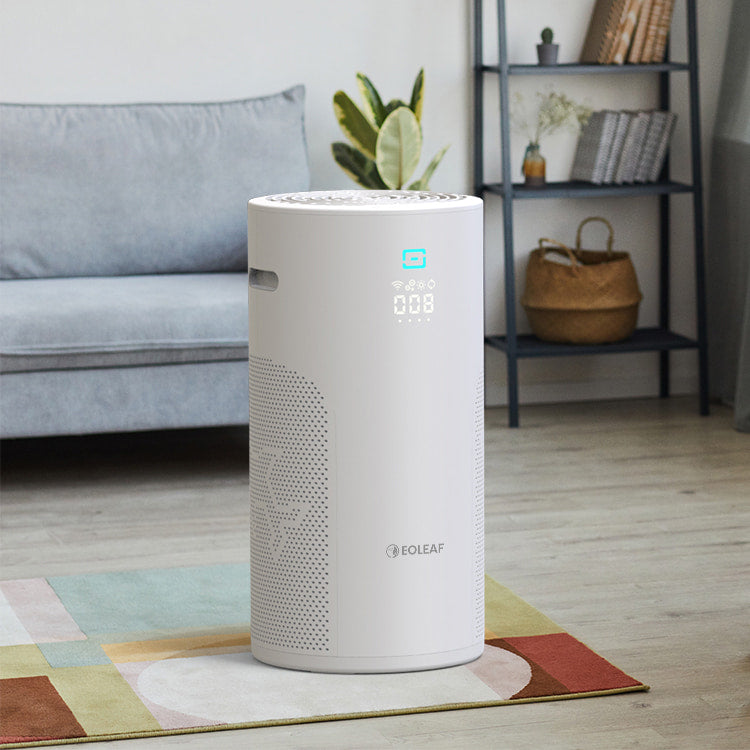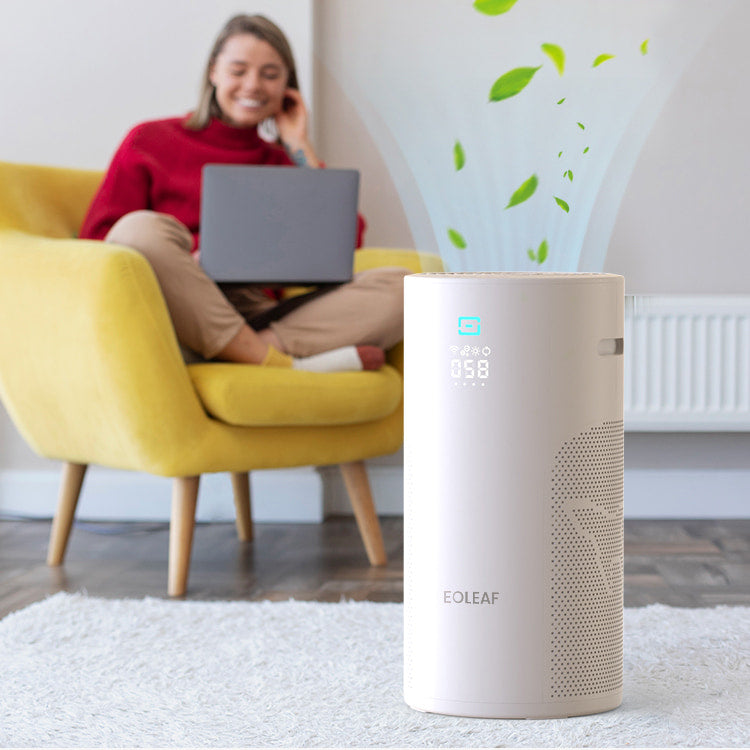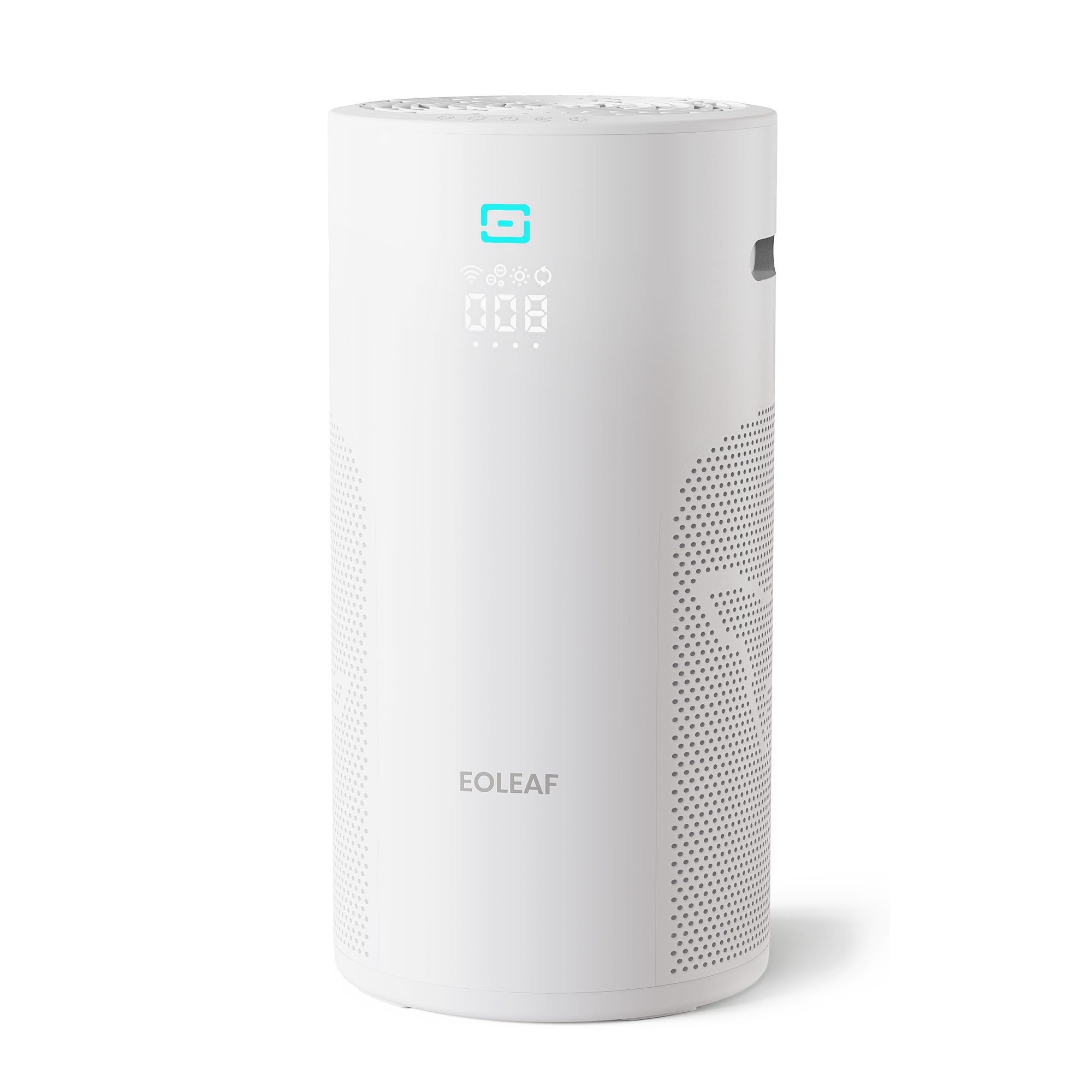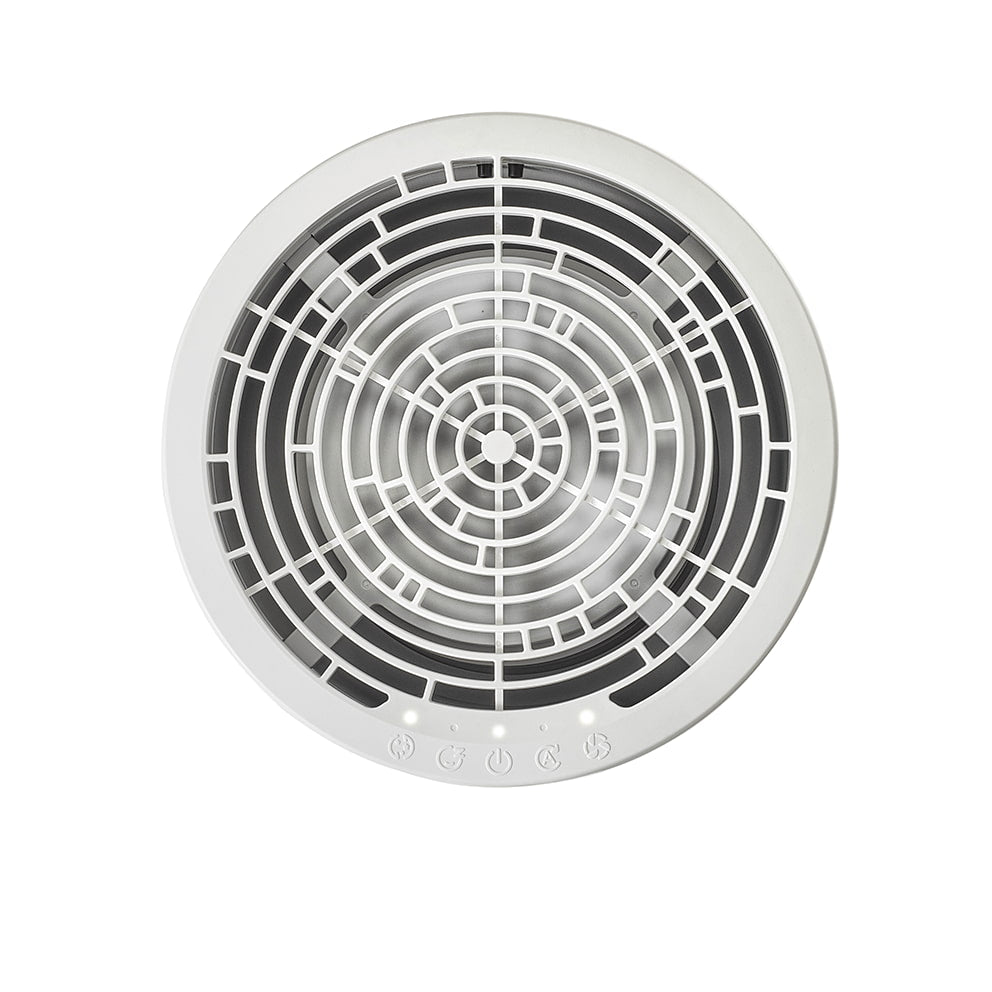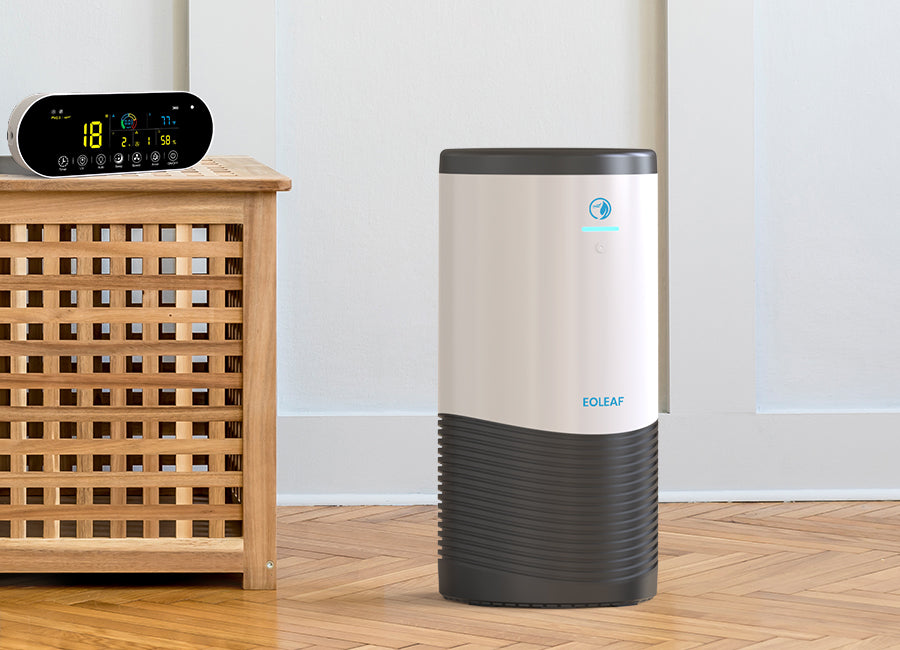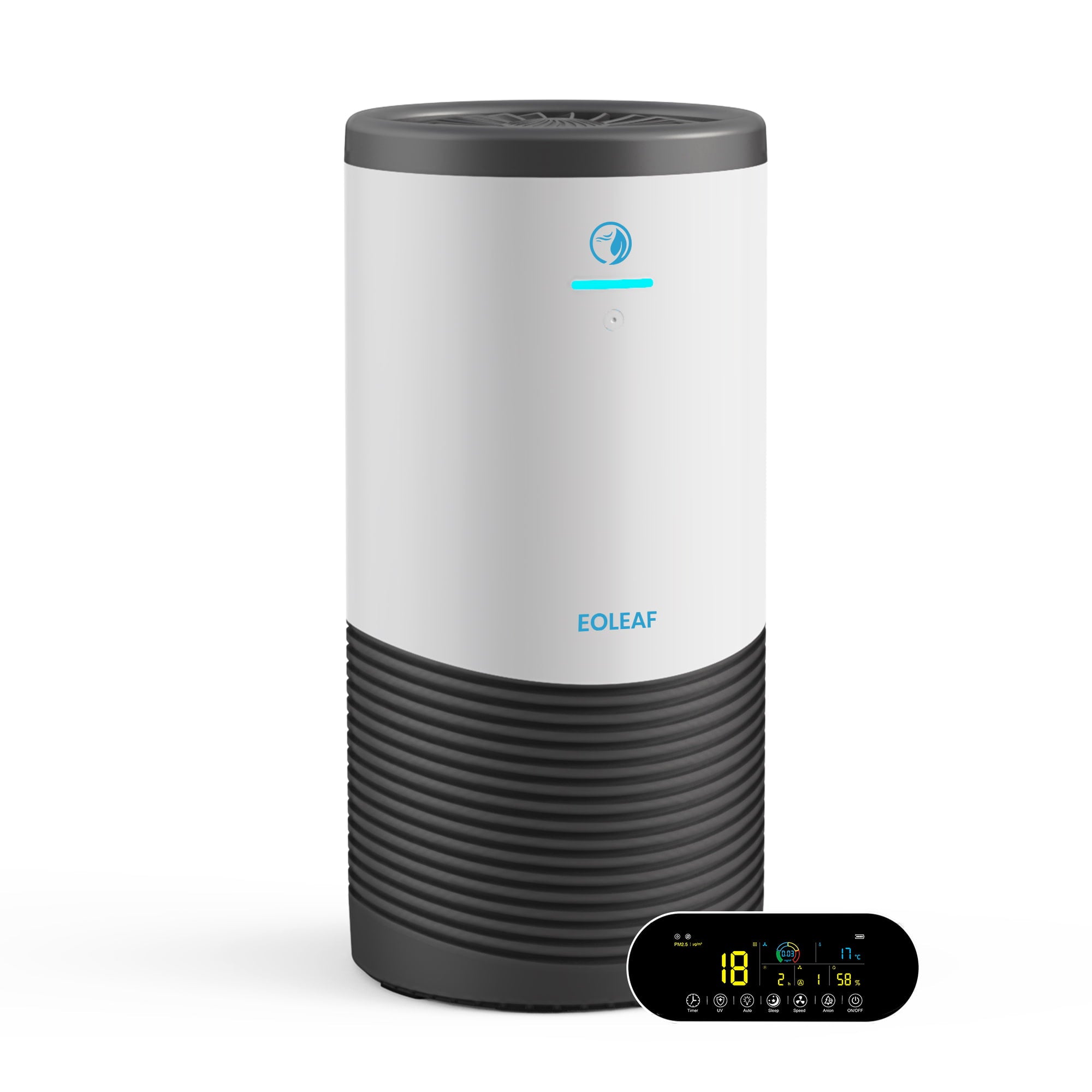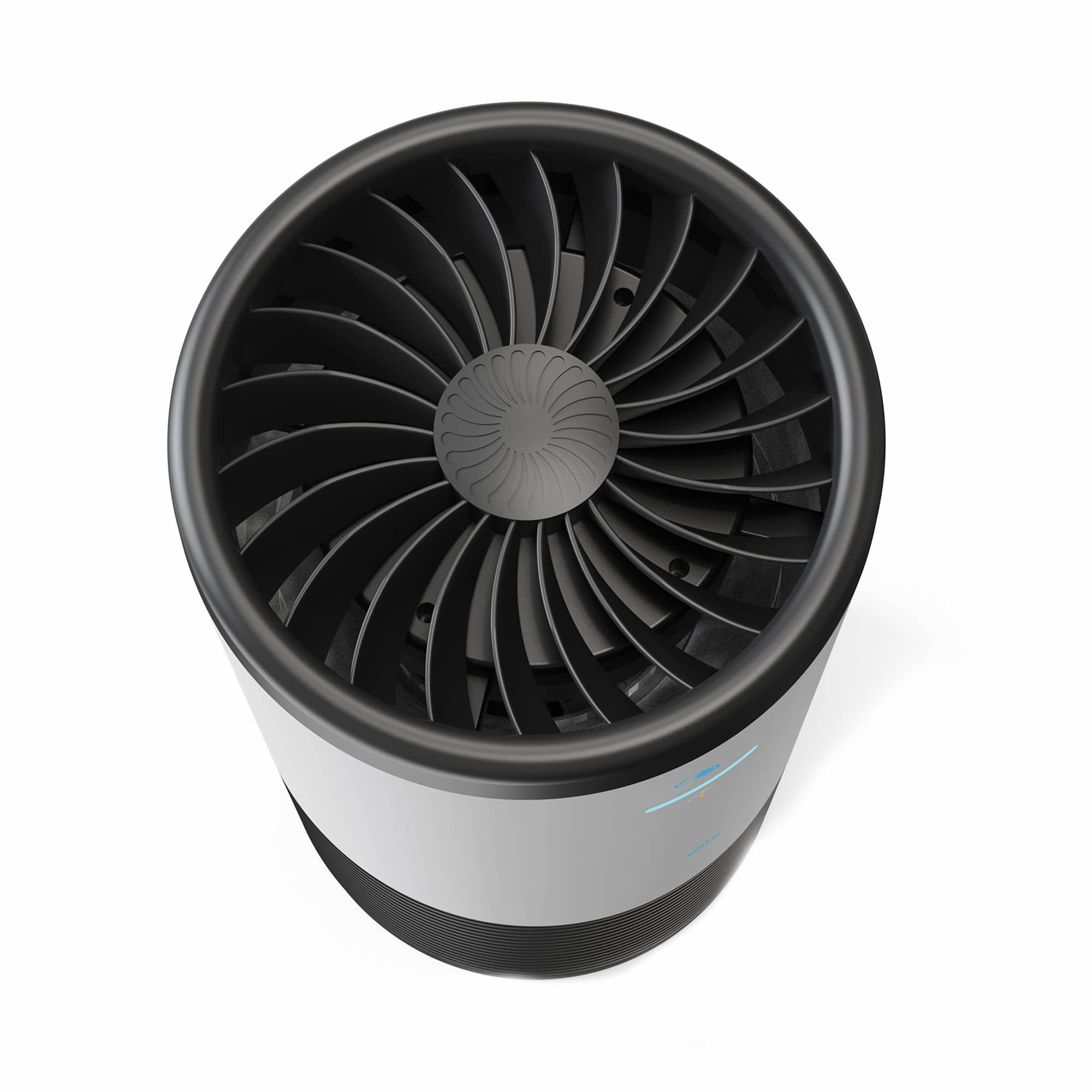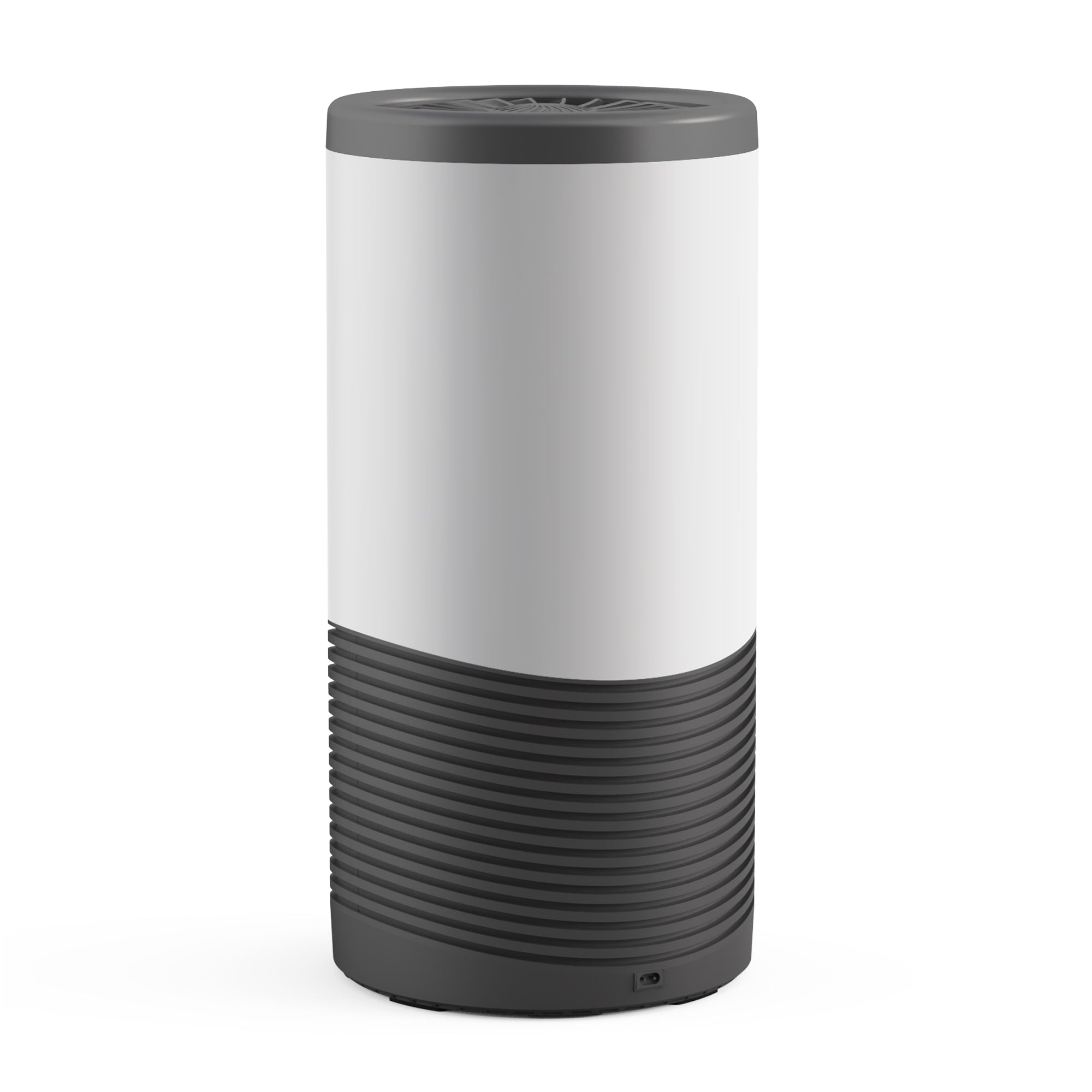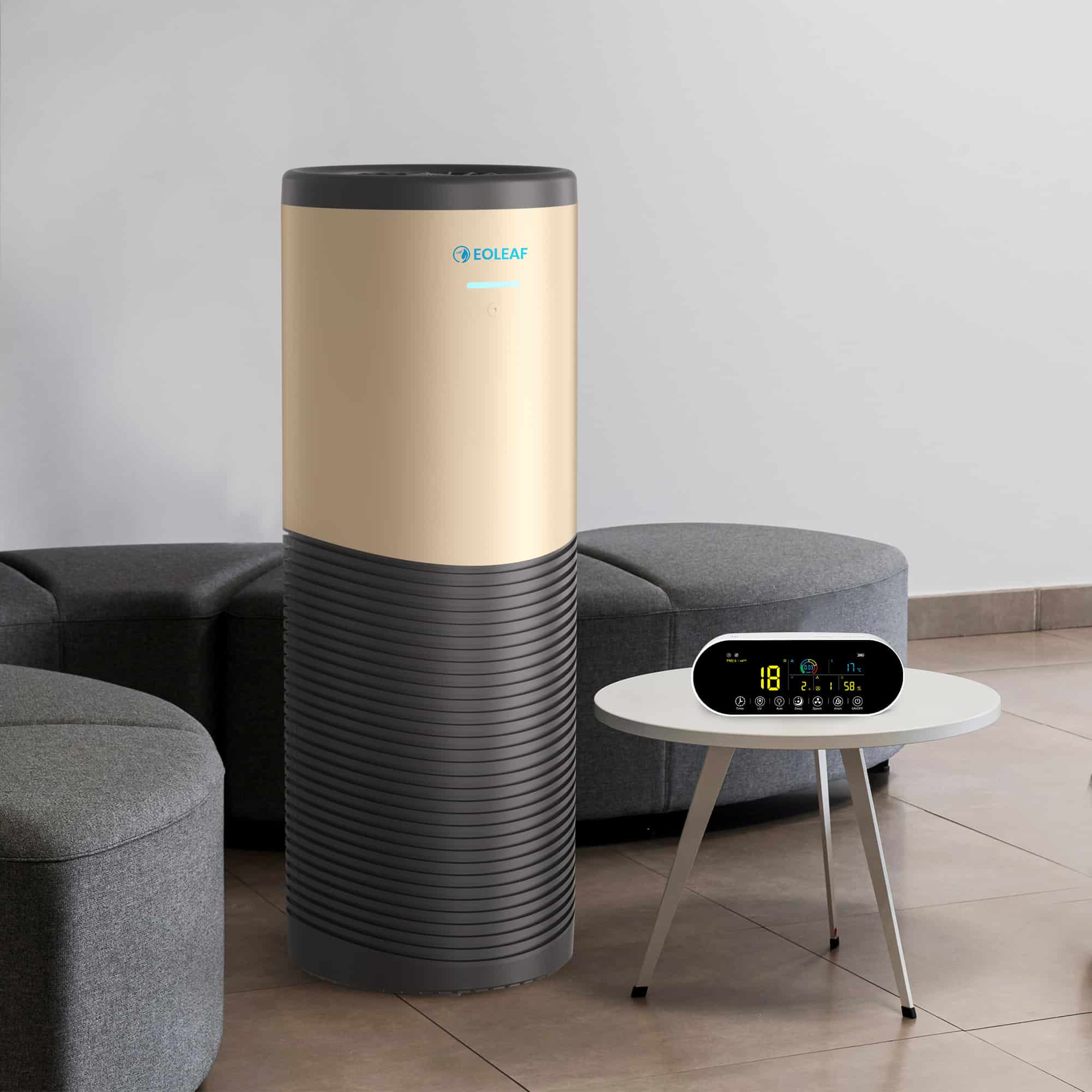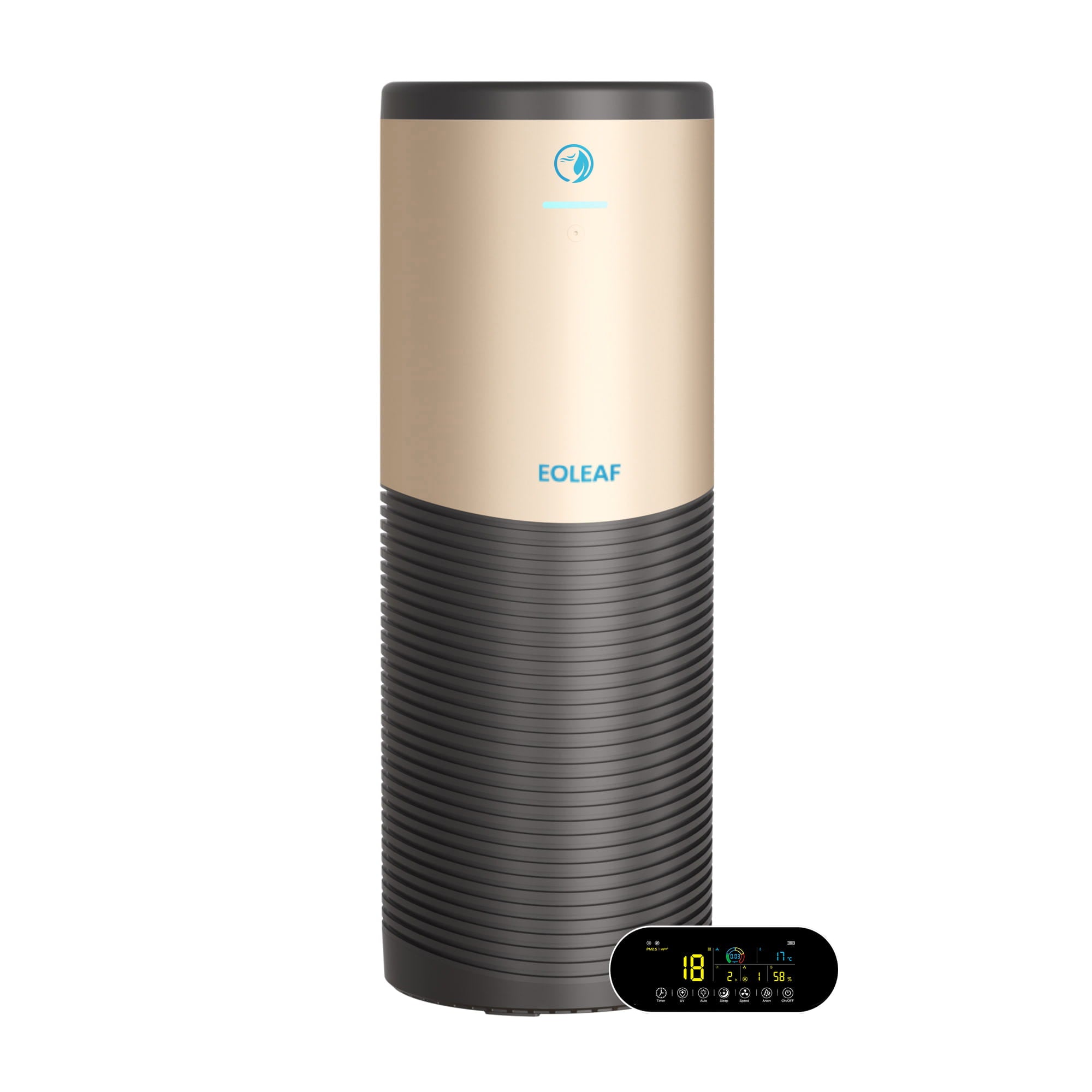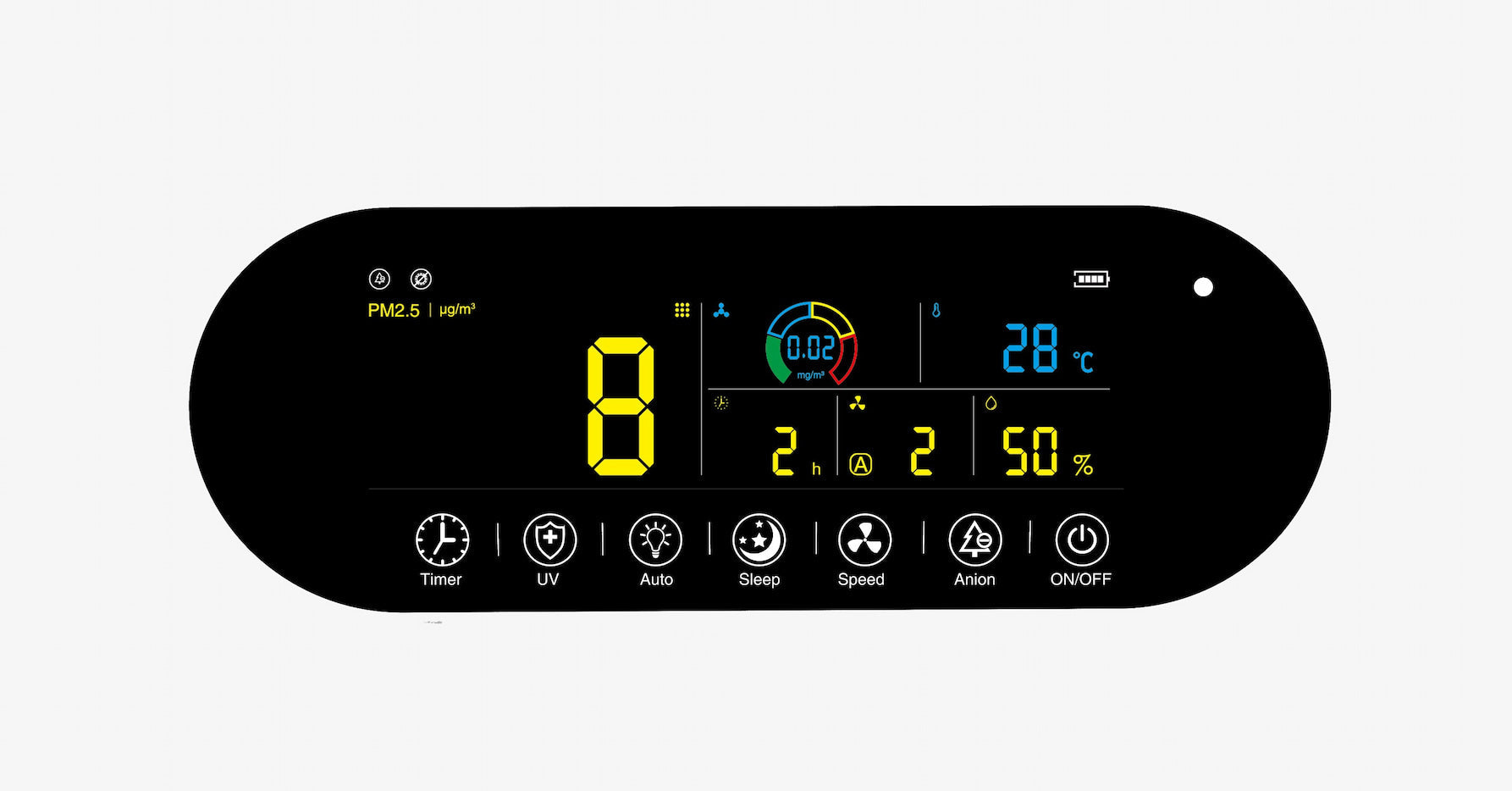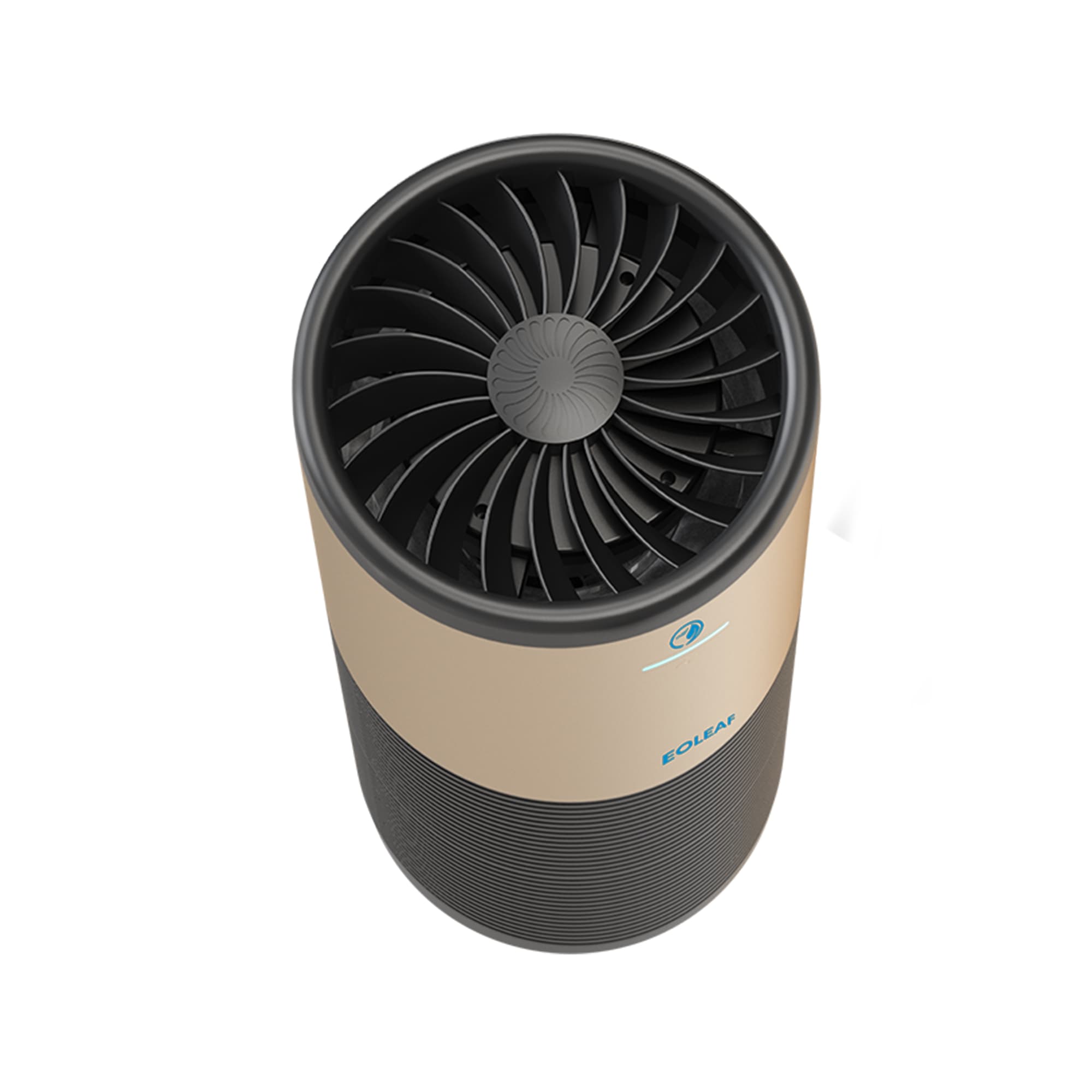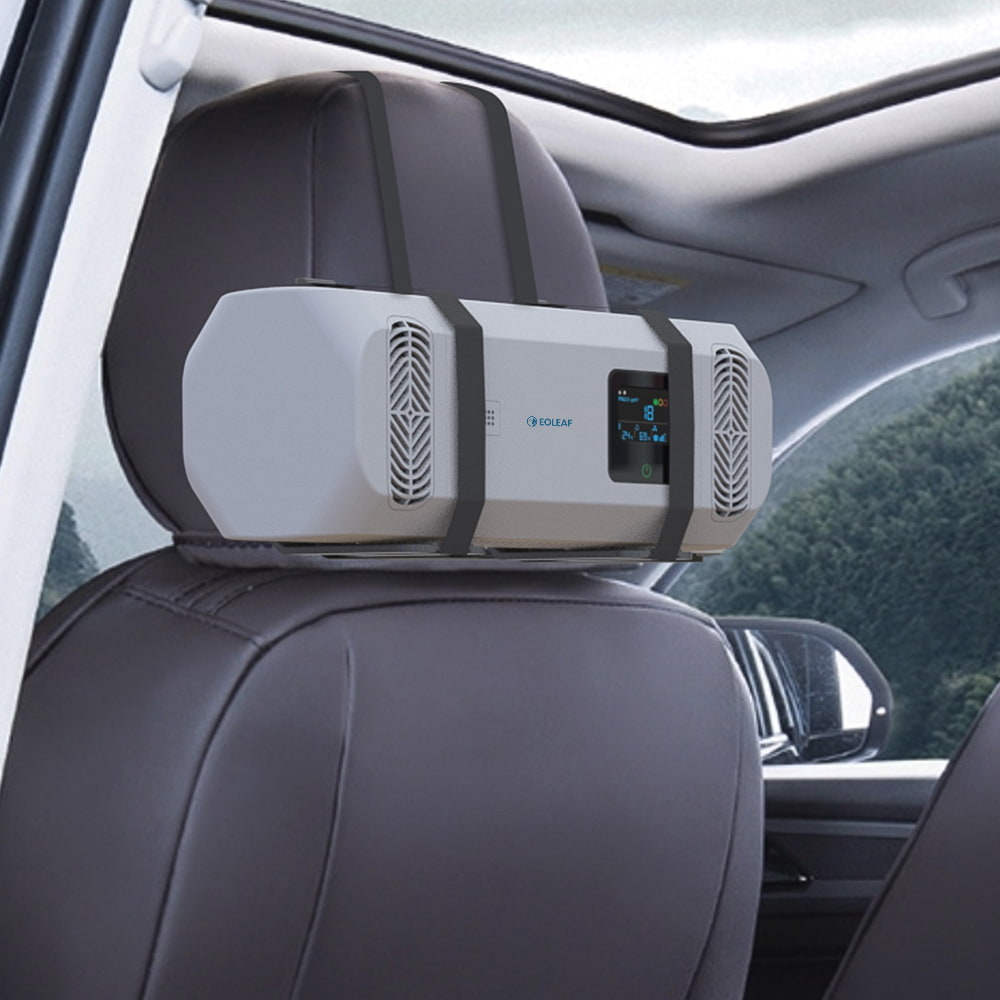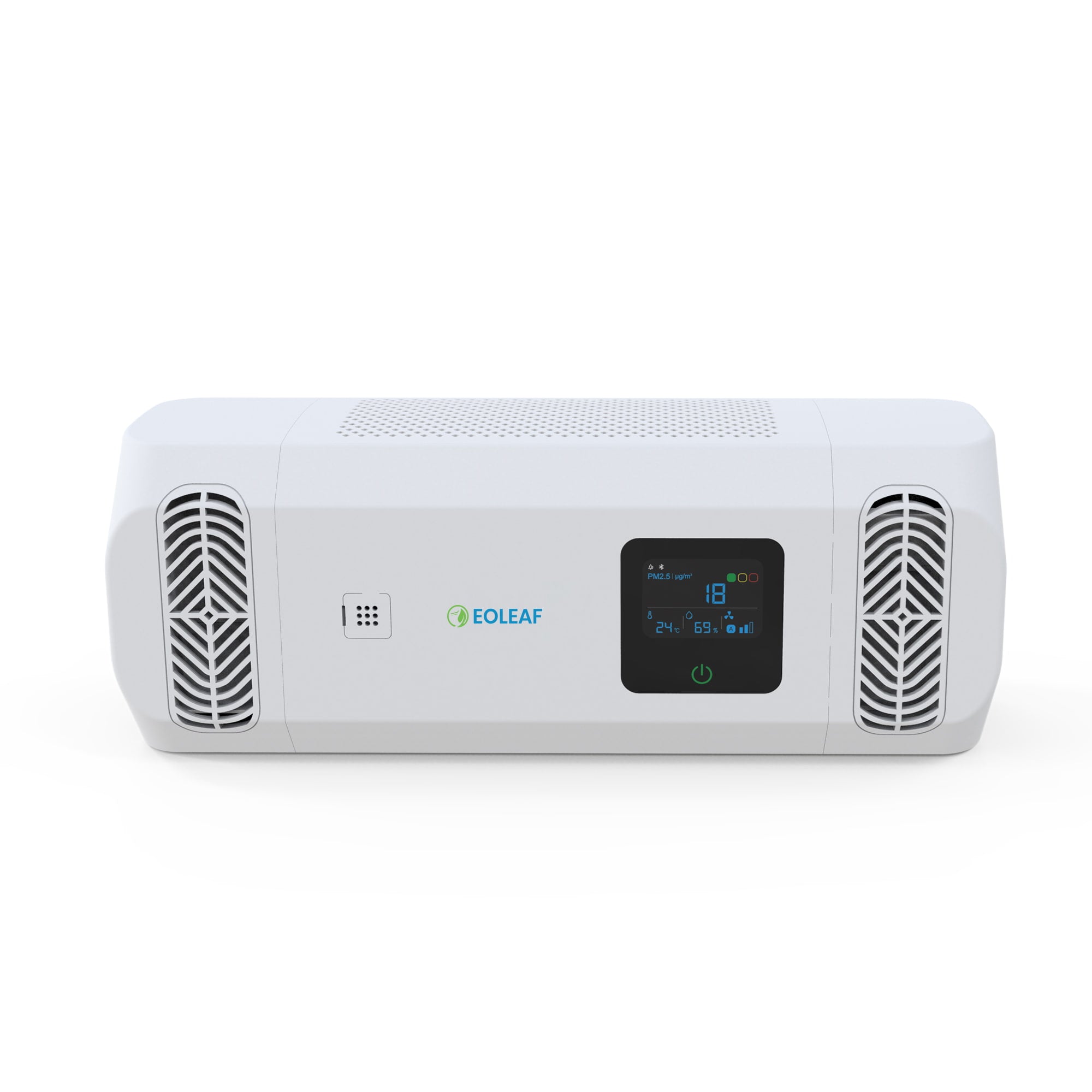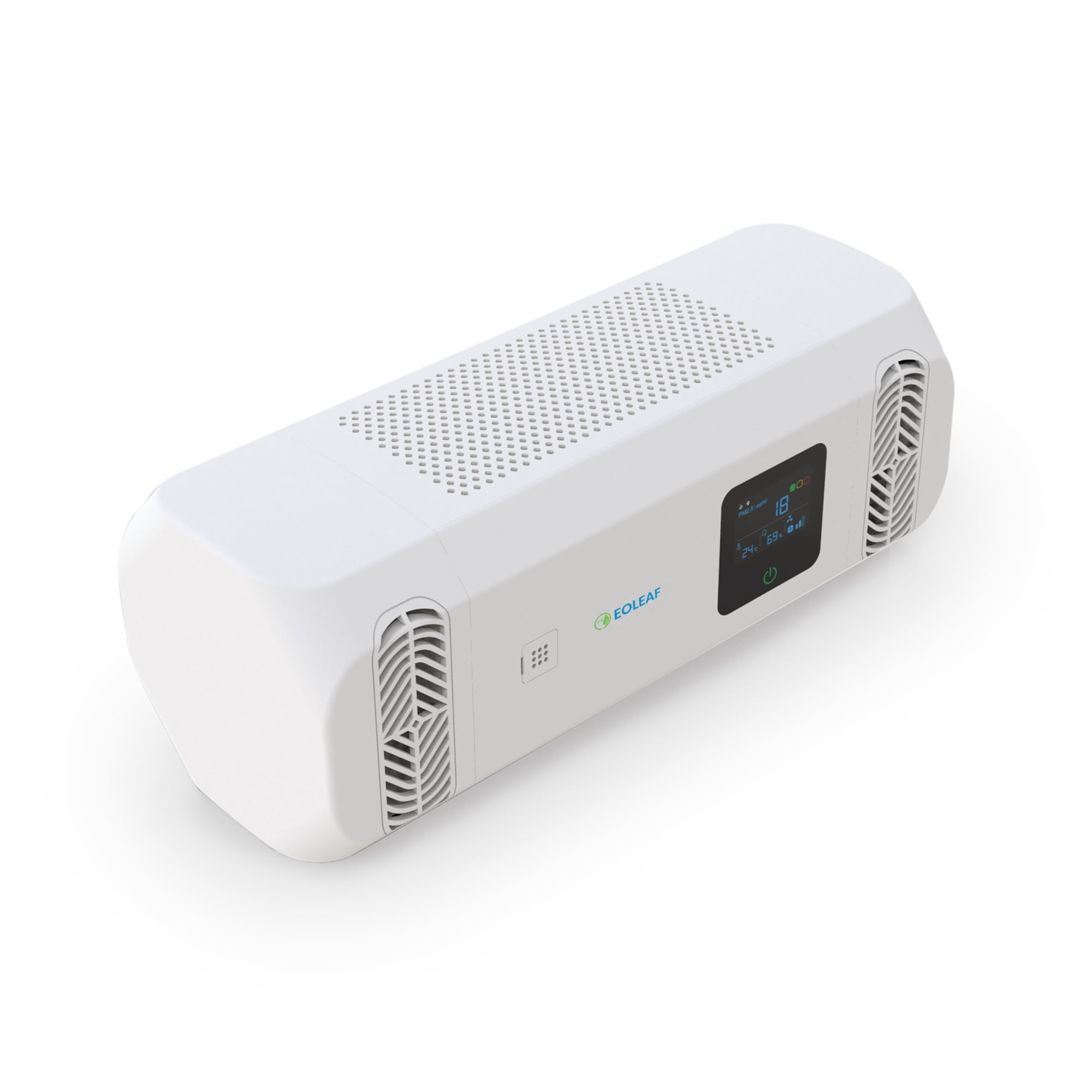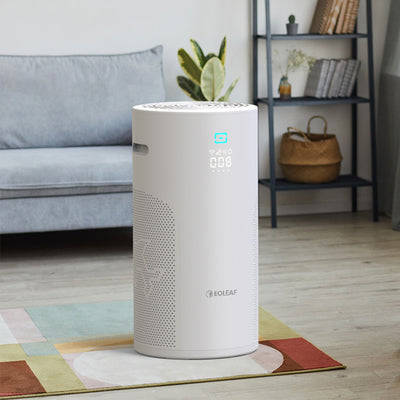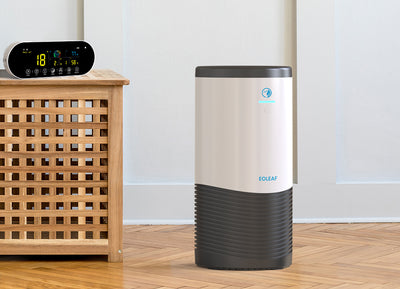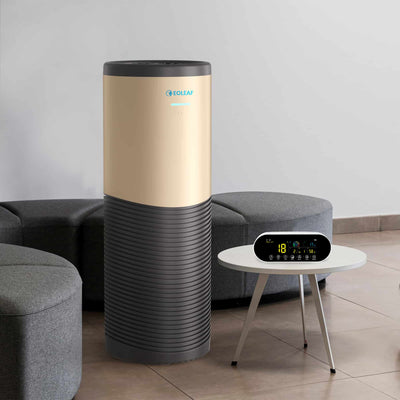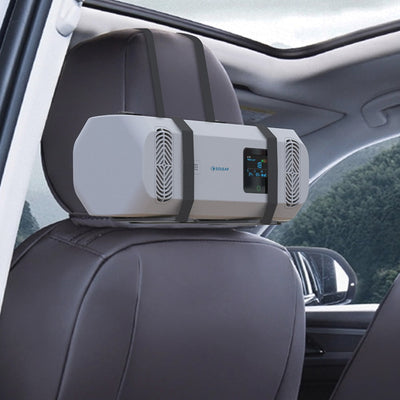Do air purifiers really work?
Given the recent pandemic and worsening conditions of the air we breathe in many parts of the world, air purifiers have made their way into headlines as a solution to reducing indoor air pollution. But are these claims legitimate? Do air purifiers really work in protecting us against the dangers of indoor air pollution? Read on to learn more.

What is an air purifier?
How do air purifiers work?
An air purifier is a portable device that uses an internal fan to pull in polluted air from a specific space, treats the air inside the device using various filtration technologies in order to remove unwanted particles, and then circulates the purified air back into the room. Depending upon the level of indoor air pollution of the space, air purifiers work by repeating this process several times an hour. The goal of an air purifier is to reduce our exposure to harmful indoor air pollution and protect our health and well-being. Some ways an air purifier can do this are by:
- Lowering the risk of air pollution-caused illness and disease
- Easing symptoms of allergies to pollen, dust, pet dander, or other allergens
- Reducing attacks and symptoms for those with asthma
- Protecting vulnerable populations like children and infants, pregnant women, elderly individuals, and the immunocompromised
It is worth noting that all air purifiers require regular filter changes. It is important to replace your filters in order for your device to continue to function properly. Devices with saturated filters can even increase your exposure to air pollutants by releasing them back into your air if filters are not maintained.
For which environments are they best suited?
These devices are intended for use in homes, in offices or other professional environments, in schools, and even in cars.
What else can it do?
More modern air purifiers with Wi-Fi connection can also serve as a very useful tool in helping you understand the quality of your indoor air. Your device can tell you the levels of air pollution in your space in real-time in addition to the air temperature and humidity levels in your space. Some devices provide air quality indicators by colour. Find Eoleaf’s air quality indicator colours below:
- Excellent: green
- Good: blue
- Poor: yellow
- Very poor: red
Furthermore, some devices come equipped with the convenience of an Automatic mode. You will find this on all Eoleaf devices. This setting allows your air purifier to automatically adjust its fan speed depending upon the level of air pollution it detects. This feature provides consistently clean air and reduces your exposure to pollutants even when new pollutants are introduced into your space.
Certain devices on today’s market even have a smartphone app specifically designed for air purifiers. This is a greatly helpful tool, allowing you to gain more insight into your indoor air quality. You can even set smart scheduling to automate its functions. Eoleaf devices use the Tuya Smart app.
Additional features that you may find offered by high-quality air purifiers may include a Bluetooth remote control, a filter change indicator, wheels and/or handles for easy movement, a timer function, and Night mode. Find all of these features and more integrated into Eoleaf devices!

What can an air purifier filter out?
It is important to understand that not all air purifiers are created equal. This means that they do not all guarantee the same level of protection from exposure to air pollution.
HEPA filters: the gold standard of air filtration
The most important thing to look for whilst researching your future air purifier is to ensure that it contains a filter that is HEPA-certified. What is* a HEPA filter, and why is it important in the fight against indoor air pollution?
‘HEPA’, or ‘high-efficiency particulate air’, is the gold standard of air filtration. A filter capable of filtering, in a single pass, at least 99.97% of particles of a size greater than or equal to a diameter of 0.01 µm receives this designation. HEPA is a European certification overseen by European standards EN 1822 and EN ISO 29463. These filters have been used for decades in laboratories, operating theatres, and cleanrooms. A proper HEPA filter can filter out bacteria, viruses, common household substances that cause respiratory allergies (such as pet dander and pollen), pollution like dust and smoke, mould spores, VOCs (volatile organic compounds that can be harmful to our health and well-being), and more1.

Activated carbon filtration
A high-quality air purifier may also come equipped with other technologies such as an activated carbon filter. Thanks to its high gas absorption capacity, activated carbon is incredibly effective at fighting against unpleasant odours. This is why some storage boxes for cheese or vacuum cleaners use activated carbon.
Ionisation
Furthermore, some air purifiers function as an air purifier and ioniser simultaneously. Ionisation is a technique that is particularly recognized for its high efficiency against particulate pollution (fine particles, nanoparticles, and dust). Negative ions are highly reactive (due to their polarity). They attach themselves to pollution particles of positive polarity and will either disintegrate these positively-charged particles or will weigh them down and drop them to the ground, far away from your lungs.
Research studies on air purifier efficacity
The above information may be useful, but what does science say? Do air purifiers work in the way they are intended? Are they able to protect us from harmful air pollutant exposure and unpleasant allergy symptoms?
A 2020 study found that air purifiers ‘quickly reduced PM2.5 levels from 20.64 μg/m3 to 5.58 μg/m3’ when analysed in both a living room and a bedroom setting2.
A 2021 study in various educational settings in Poland measured an air purifier’s ability to reduce airborne bacterial contamination. It reported a reduction of about 20% of bioaerosols and microbiological pollutants3.
Another 2021 study found that HEPA-certified air purifiers removed 29 to 53% of PM levels of different sizes in general indoor air4.
A 1997 study assessed the effectiveness of air purifiers over a period of six months, focusing mostly on particulate matter and allergen levels. Findings showed that HEPA-certified air purifiers were capable of filtering 70% of 0.3-μm particles and 95% of 1.0-μm particles, proving ‘the capacity to capture substantial amounts of airborne dust particles and airborne allergens’5.
A 2014 study on particulate matter levels in children’s bedrooms found that air purification devices removed, on average, 50% of PM concentrations6.
One additional study in 2012 published results showing that air purifiers reduce between 69 to 80% of particulate matter concentrations in homes, supporting their use especially in homes with asthmatic children7. People suffering from asthma benefit greatly from having an air purifier at home; these devices are particularly helpful in warding off asthma attacks.
Eoleaf devices were put to the test during the coronavirus pandemic by a third-party laboratory, Octopus Lab. Our devices were proven to reduce airborne viral contamination by 40% in environments without masks, and upwards of 90% in environments with masks. They were also tested and proven to be effective against particulate matter and substances that cause allergies. Refer to our article linked above for more details.

Choosing your air purifier
Consider performance and the size of your room
In order for the air in your room or home to be properly cleaned and to protect your health and well-being, you must purchase an air purifier that is properly sized to suit your space. Once you have chosen the air purifier that best suits your needs, we recommend purchasing a model that is sized for a space slightly larger than the one in which you are looking to install the air purifier. This will ensure a thorough cleaning and purification of the air in your space.
A useful way of properly sizing your unit and determining your air purifier’s capacity and performance is by using two metrics: the ‘clean air delivery rate’ (CADR) and ‘air changes per hour’ (ACH).
CADR is used to measure an air purifier’s ability to purify pollutants from your indoor space. It enables you to know the volume of air that can be treated by the device, and, thus, the room size it can properly filter.
ACH indicates the number of times that a room’s entire volume of air is renewed with purified air per hour. Using an ACH value of 5 (the minimum ACH value recommended by the Centre for Disease Control), this means that the air is replaced 5 times per hour. Calculate your ACH using the following simple equation:
- ACH = CADR / volume of room
Consider your pollution type and type of filter
Which pollution type is of the most concern in your indoor space? Are you looking for a solution to combat mould and spores, fine particles, or chemical pollution like VOCs? Are you experiencing unpleasant allergies due to pollen, dust, or other allergens in your home? Maybe you have a neighbour who smokes, causing a nuisance to you in your space? Perhaps eliminating germs like bacteria and viruses from your space is your goal?
Most air purifiers contain one or two filtration technologies that are designed to combat certain types of pollution. A HEPA-certified filter, for example, is great for fighting against fine particle pollution like PM10 and PM2.5, as well as allergens like pollen or dust and cigarette smoke. Ionisation depolluting technologies are also excellent for fighting against fine particulate matter. However, neither of these technologies are able to remove VOCs from your breathing air. For this, you will need a device that is equipped with an activated carbon filter. Photocatalysis is another useful technology in removing VOCs from your indoor air.
If you are hoping to remove bacteria and viruses from your space, ultraviolet (UVC) sterilisation technology is your best bet.
A great way to ensure that your air purifier combats all types of pollution is to purchase one that does exactly that! Eoleaf devices use a proprietary 8-step filtration system that ensures all of the above types of pollution are removed from your indoor air.
Consider the noise level and placement
When choosing your device, be sure to choose one that is powerful but quiet. A quiet air cleaner will not disturb your day-to-day life. Additional features like Night mode will also respect your sleep by reducing its fan speed to its lowest level and shutting off its indicator lights.
Remember: proper placement of your air purification device can dramatically improve its efficiency! Think about where you plan to install your device before you make your purchase. An air purifier works best when it is placed far from corners and walls, unimpeded by furniture or shelving. Be sure that its air inlets and outlets are unobstructed and that it is positioned in a place with optimal airflow.
Consider budget and energy consumption
Air purifiers vary drastically in their options and, as a result, their price tag. There are three parts to consider when budgeting for an air cleaner: 1) the initial cost, 2) the maintenance costs, and 3) costs associated with energy consumption.
Learn more about how to budget for an air purifier by referring to our article here.
The Eoleaf difference
Eoleaf’s air purifiers offer the most advanced technologies on today’s market, including HEPA filters, activated carbon filters, all while serving simultaneously as an ioniser with photocatalysis and UV technologies. Find out more about our range of air purifiers here and refer to our in-depth Buying Guide for more information on our products. Additionally, if you need assistance while making your decision, we are here to help! Reach out to our team of experts with any and all of your questions.

References
1 Engel, P., Barnes, C. (2022, September 20). Do air purifiers really work? CHOICE. Retrieved November 23, 2022, from https://www.choice.com.au/home-and-living/cooling/air-purifiers/articles/are-air-purifiers-worth-it
2 Catalina, T., & Feraru, A.-E. (2020). 8. experimental study of the impact of Air Purifiers on the indoor air quality inside of an apartment. Proceedings Of International Conference Building Services And Energy Efficiency, 84–92. doi:10.2478/9788395720413-008
3 Brągoszewska, E., & Biedroń, I. (2021). Efficiency of air purifiers at removing air pollutants in educational facilities: A preliminary study. Frontiers in Environmental Science, 9. doi:10.3389/fenvs.2021.709718
4 Dubey, S., Rohra, H., & Taneja, A. (2021). Assessing effectiveness of Air Purifiers (HEPA) for Controlling Indoor Particulate Pollution. Heliyon, 7(9). doi:10.1016/j.heliyon.2021.e07976
5 van der Heide S, Kauffman HF, Dubois AE, de Monchy JG. Allergen reduction measures in houses of allergic asthmatic patients: effects of air-cleaners and allergen-impermeable mattress covers. Eur Respir J. 1997 Jun;10(6):1217-23. doi: 10.1183/09031936.97.10061217. PMID: 9192919.
6 Batterman S, Du L, Mentz G, Mukherjee B, Parker E, Godwin C, Chin JY, O'Toole A, Robins T, Rowe Z, Lewis T. Particulate matter concentrations in residences: an intervention study evaluating stand-alone filters and air conditioners. Indoor Air. 2012 Jun;22(3):235-52. doi: 10.1111/j.1600-0668.2011.00761.x. Epub 2012 Feb 4. PMID: 22145709; PMCID: PMC4233141.
7 Du L, Batterman S, Parker E, Godwin C, Chin JY, O'Toole A, Robins T, Brakefield-Caldwell W, Lewis T. Particle Concentrations and Effectiveness of Free-Standing Air Filters in Bedrooms of Children with Asthma in Detroit, Michigan. Build Environ. 2011 Oct;46(11):2303-2313. doi: 10.1016/j.buildenv.2011.05.012. PMID: 21874085; PMCID: PMC3161201.
Eoleaf's range of air purifiers
NeoPur 400 air purifier
40 m² (450 sq ft) coverage area - Smart & Connected
TeraPur 600 air purifier
80 m² (850 sq ft) coverage area - Ultimate all-in-one
AltaPur 700 air purifier
120 m² (1300 sq ft) coverage area - Professional model
PurCar air purifier
HEPA H13 Filter & Ioniser - For all vehicles

